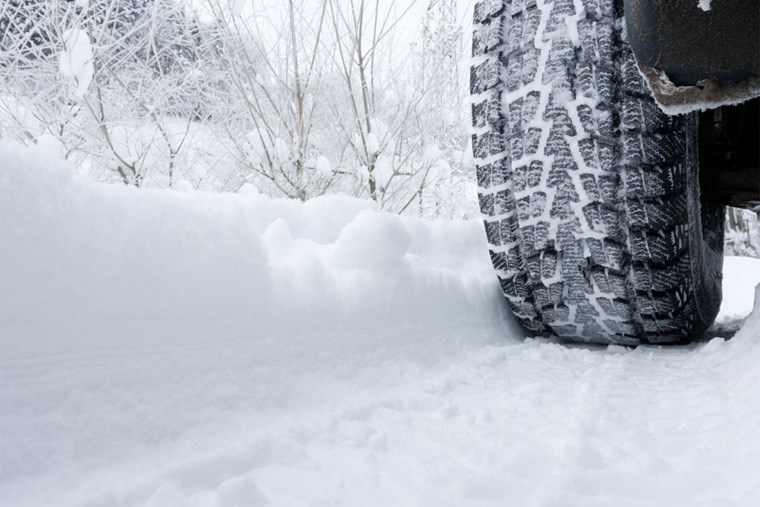As fall turns to winter and the first few snowflakes drop on the pavement, the great winter tire debate rages anew. Some people don’t even pause before switching out their all-season or summer tires for cold weather ones, and others swear they can get around just fine on summer tires year-round.
Then, there’s the snow tire question. Should you get snow tires, or will winter tires do the trick? Should you get both? What is the difference between the two? Well, fear not. Below is a guide outlining what you should know about snow and winter tires and whether you need to buy either of them.
Determining If You Need Snow or Winter Tires
If the region you live in gets intermittent or light snow throughout the winter, it’s a good idea to get winter tires. They’re especially important if there is a tightly packed layer of snow on the ground for most of the winter. Snowpack may become iced over and slick in the winter sun, and winter tires provide extra traction. If you live in an area that gets heavy snow, and you frequently drive on roads with multiple inches of snow, you should get snow tires. Snow tires are designed to give extra grip when spinning on top of loose snow. They can be the difference between stopping in time or getting unstuck after a heavy snow.
Differences Between Tire Types
Summer or all-season tires are meant for dry roads or roads wet from rain. They have shallow treads, and the tread pattern is designed to quickly funnel water away from where the tire contacts the road. However, this tread pattern does a poor job gripping icy or snow-covered roads.
Winter tires are intended for cold weather and roads with light snow throughout the winter. The tread of winter tires has a unique composition that keeps the rubber soft in very cold temperatures. This allows the tire to grip the road better, even on ice. Winter tires’ deeper tread pattern provides extra road grip and gives the snow somewhere to go so that there’s less between your wheel and the road. It does give them a disadvantage on dry roads, as the tread pattern can wear down more quickly, especially at higher speeds.
Snow tires have all the benefits of winter tires, with an even deeper tread and biting edges. These zig-zag grooves give additional traction when the wheel starts to spin on the snow. Some snow tires also have metal studs that provide even more traction in snowy conditions.

How Much Do They Cost?
Consider how many months during the year you’ll be using winter or snow tires ahead of determining how much to spend on them. Snow tires generally only last for about 35,000 miles, but because you’ll likely only use them for part of the year, they can help extend the life of your high-mileage-rated tires. Expect to spend $80 to $200 per tire, and it could be more depending on your type of car.
Are Winter or Snow Tires Worth It?
If you live in Alberta, yes. It’s as much about convenience as it is about safety. Not only can they prevent your vehicle from sliding off the road or not being able to stop, but they also can ensure you don’t get stuck on snow-clogged roads. On top of that, it only takes one wreck to blow past the lifetime cost of an extra set of tires. Because of the high incidence of pile-ups resulting from crashes during winter storms, winter tires can help ensure you stay safe on the road.
Ultimately, snow or winter tires can make a big difference in your safety when driving on icy, snow packed roads. It’s an investment, but one that is likely worth your while.
 This story was made possible by our Community Partners Program. Thank you Cam Clark Ford Canmore for helping to expand local news coverage in Alberta. Learn more.
This story was made possible by our Community Partners Program. Thank you Cam Clark Ford Canmore for helping to expand local news coverage in Alberta. Learn more.



